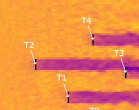HerculesModel#
The HerculesModel class orchestrates the entire Hercules simulation, managing the main execution loop and coordinating between the controller, HybridPlant, and output logging.
Overview#
The HerculesModel serves as the central coordinator that drives the simulation forward step-by-step, handling data logging, performance monitoring, and output file generation.
Usage#
HerculesModel is initialized with an input file, and then a controller is assigned separately. The simplest case is a pass-through controller:
from hercules.hercules_model import HerculesModel
# Initialize the Hercules model
hmodel = HerculesModel("hercules_input.yaml")
# Define your controller class
class MyController:
def __init__(self, h_dict):
# Initialize with prepared h_dict
pass
def step(self, h_dict):
# Implement control logic
return h_dict
# Assign the controller to the model
hmodel.assign_controller(MyController(hmodel.h_dict))
# Run the simulation
hmodel.run()
The HerculesModel handles all initialization automatically:
Sets up logging
Loads and validates the input file
Initializes the hybrid plant
Adds plant metadata to h_dict
The controller is then assigned using the assign_controller() method, which:
Takes a controller instance (not the class)
The controller instance is initialized with the prepared h_dict from the model
Simulation Flow#
For each time step:
Update external signals from interpolated data
Execute controller step (compute control actions)
Execute hybrid plant step (update component states)
Log current state to output file
Advance simulation time
Configuration Options#
Logging Configuration#
The HerculesModel supports configurable logging frequency through the log_every_n parameter:
log_every_n(int, optional): Controls how often simulation data is logged to the output file.Default: 1 (log every simulation step)
Example:
log_every_n: 5logs data every 5 simulation stepsThis reduces output file size and improves performance for long simulations
Output File Generation#
The HerculesModel generates HDF5 output files containing comprehensive simulation data for analysis and visualization.
The output file includes metadata with:
dt_sim: Simulation time step (seconds)dt_log: Logging time step (seconds) =dt_sim * log_every_nlog_every_n: Logging stride valuestart_clock_timeandend_clock_time: Wall clock timing information
For detailed information about the output file format and reading utilities, see the Output Files documentation.
Logging Configuration#
Hercules provides a unified setup_logging() function in the hercules.utilities module that handles all logging setup across the framework. This function is used internally by HerculesModel and all component classes, but can also be used directly for custom applications.
Internal Usage#
The setup_logging() function is called automatically by:
HerculesModelduring initialization (creates hercules logger)All component classes through
ComponentBase(creates component-specific loggers)
Each component gets its own logger with an appropriate console prefix for easy identification of log messages.
